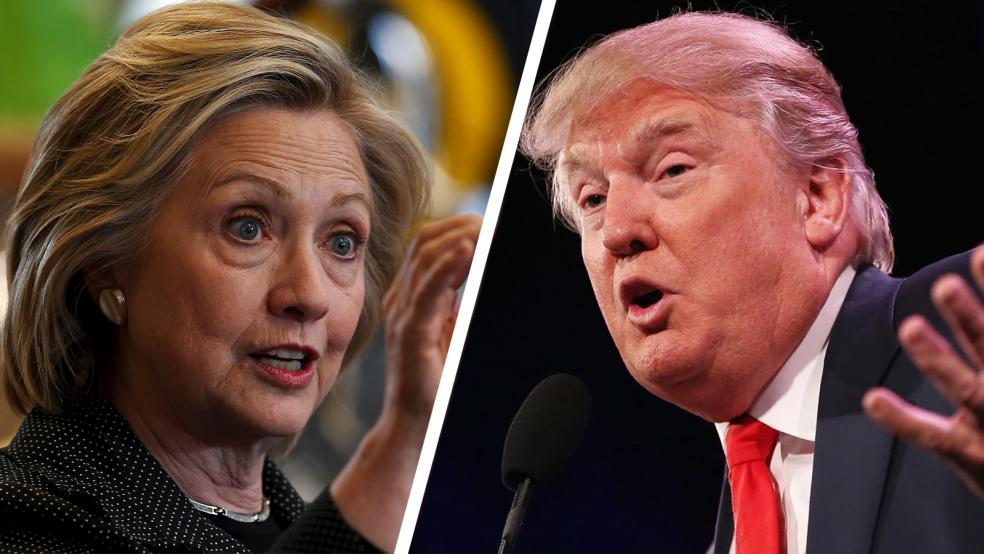To say that U.S.-Israeli relations have cooled under the Obama and Netanyahu administrations would be a massive understatement. Besides differences in policies, both men truly dislike each other.
Obama acknowledged recently that peace between the Israelis and the Palestinians wouldn’t be achieved during his time in office. And while Vice President Joe Biden last month reiterated the U.S. commitment to Israel’s security, he also openly described the administration’s “overwhelming frustration” with the Israeli government under Netanyahu. Other administration officials have said that their top aim is now to make sure that a two-state solution remains on the table for Obama’s successor.
Related: After Obama’s Nuke Deal, What Happens If Israel Attacks Iran?
“The Israeli-Palestinian issue is reaching a stage where the next president, whoever it is, will have to make a major effort to break through to peace — and then cool relations with a side it believes to be responsible for failure,” says Freilich Charles, a senior fellow at Harvard’s Kennedy School of Government and a former Israeli deputy national security advisor.
But whether the next president is Hillary Clinton or Donald Trump, the direction of U.S.-Israeli relations may hinge not only on long-standing issues such as the continued expansion of Israeli settlements in the West Bank, but on the U.S. approach to Iran.
How Iran Changed the Game
The six-nation Iran nuclear deal negotiated by the Obama administration represents a dramatic change in U.S policy. Iran has reconnected with the West after 36 years, signing the nuclear agreement that Israel opposed. Iran has also expanded its regional influence in Iraq and Yemen in addition to its presence in Syria and Lebanon.
“The Iran policy may be the most important issue,” says Erez Striem, a counter terrorism analyst at Terrogence, an Israeli intelligence firm. “For Netanyahu and Israel, Iran is the biggest threat and is seen as connected to every problem Israel is facing in the Middle East. Obama, in recent years, saw Iran as a potential partner that is needed to address other problems, such as the rise of ISIS. But in Israel, ISIS is not seen as a direct threat, so the attempts of the U.S to form some sort of detente with Iran was definitely not looked at favorably.”
Related: Most House Members Sign Letter Backing Israel at U.N.
The Republicans
As presumptive candidates Clinton and Trump close in on their nominations, Netanyahu faces a dilemma. “The present Israeli Prime Minister, who is also our Foreign Affairs minister, is a close friend and supporter of the Republican Party establishment,” says Menachem Klein, professor of Middle East studies at Bar Ilan University, Israel. “Publicly, Netanyahu did not express his or Israel's support for any of the [candidates]. I assume that he faces a problem — unwilling to support Trump, but cannot ignore his popularity.”
Republicans are generally seen as being more supportive of Israel, but Trump has said he would look to remain neutral in the Israeli-Palestinian conflict and avoid casting blame on one side or the other in his effort to broker peace. And while Trump has touted his ability to get along with world leaders of all stripes, he postponed a planned trip to Israel late last year after Netanyahu condemned remarks about Muslims made by the Republican candidate.
Klein, who advised former Israeli Prime Minister Ehud Barak, added that if Trump becomes the next president, the Israeli public perception of the U.S. will change dramatically. Some Israelis think that if a Republican wins the White House, American politics will witness a bitter political struggle — one in which the relationship with Israel is at play.
Related: Trump Embraces Israel, Vows 100 Percent Support
“Even if Trump demonstrates a sympathetic attitude towards Israel, he will be harshly criticized by the Democrats and will turn Israel into another internal political issue in debate between the parties,” says Kobi Michael, a senior researcher at the Institute for National Security Studies, Tel Aviv.
On the crucial question of Iran, though, Trump has made clear he would tear up Obama’s “disastrous” deal. He has signaled his backing for Israel in other ways, as well. During an annual meeting organized last March in Washington, D.C. by the American Israeli Public Affairs Committee (AIPAC), Trump promised to move the U.S. embassy in Israel to the “eternal capital of the Jewish people, Jerusalem.” And he nullified his past statements about neutrality, promising that in any negotiation, “We will send a clear signal that there is no daylight between America and our most reliable ally, the State of Israel.”
The Democrats
At the same meeting, Clinton said that the U.S. need steady hands, “not a president who says he’s neutral on Monday, pro-Israel on Tuesday and who knows what on Wednesday because everything is negotiable … Well, my friends, Israel’s security is non-negotiable!” she said.
Related: Trump vs. Clinton—Who Has the ‘Steady Hands’ to Manage the Mideast?
Yet Clinton loses credibility with Netanyahu simply because of her record as Obama’s secretary of state — plus, Striem notes, Clinton and Netanyahu have their own tension-ridden history. “Hillary Clinton seems to be the most knowledgeable and reasonable person to handle U.S.-Israel relations and the Arab-Israeli conflict ... But she lacks the human touch of her husband,” says Dr. Emmanuel Navon, an international relations expert who teaches at Tel-Aviv University.
Israel’s greatest hope would be to turn back the clock to an era of consensus support by both parties. The decline of U.S. involvement in the Middle East is one of the aspects of a new era of foreign relations in the region. The greatest risk at this point is that Israel could become irrelevant in a critical regional context, where oil and nuclear power, statehood, terror groups, stability, and other complicated issues are at stake in Arab nations.
With American politics more polarized than ever, the Israelis might opt to repair relations with Democrats rather than concentrating on Republicans. “The leading interest of Israel should be to remain a consensus, not to become an issue of the internal political debate and to keep the Democrats in favor of Israel knowing that the Republicans will remain Israel's supporters,” adds Michael.





